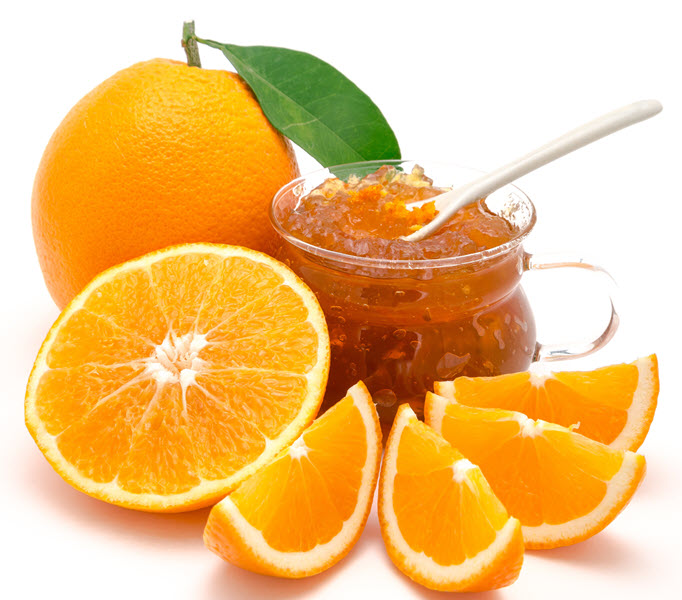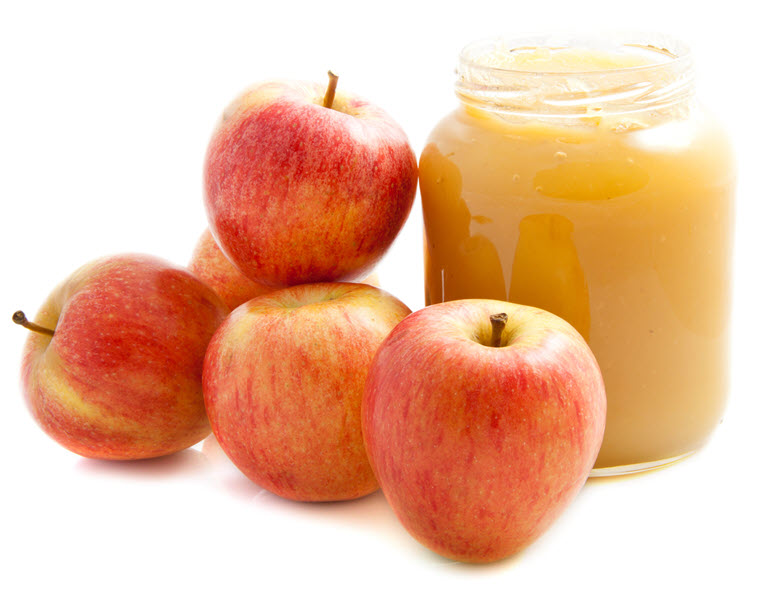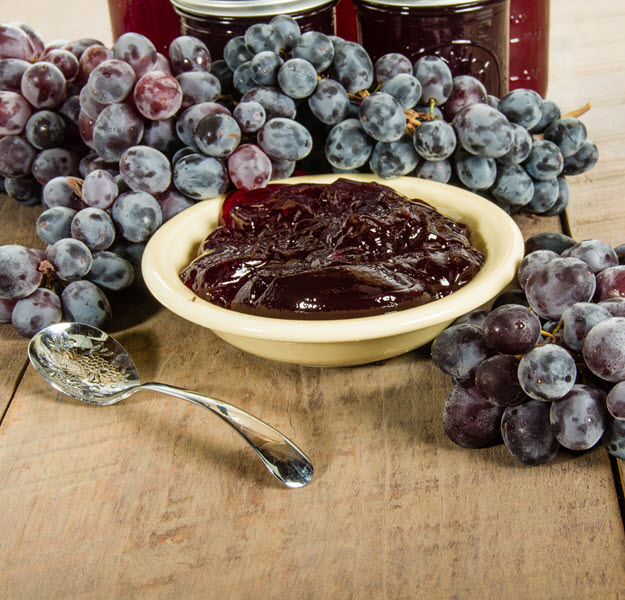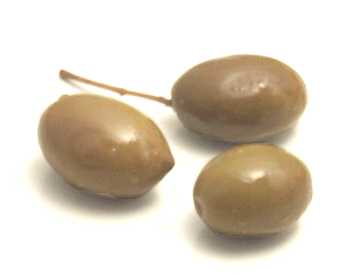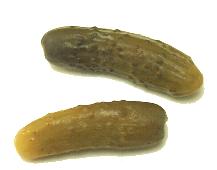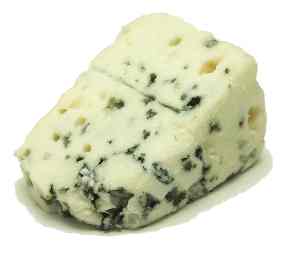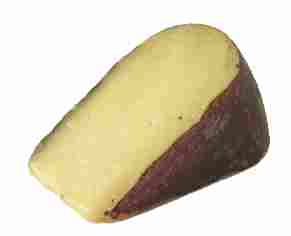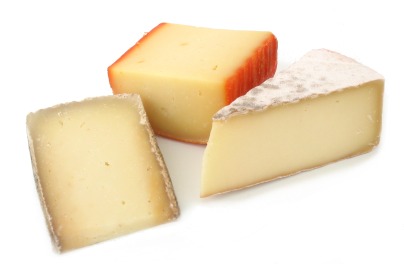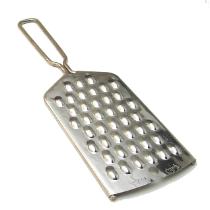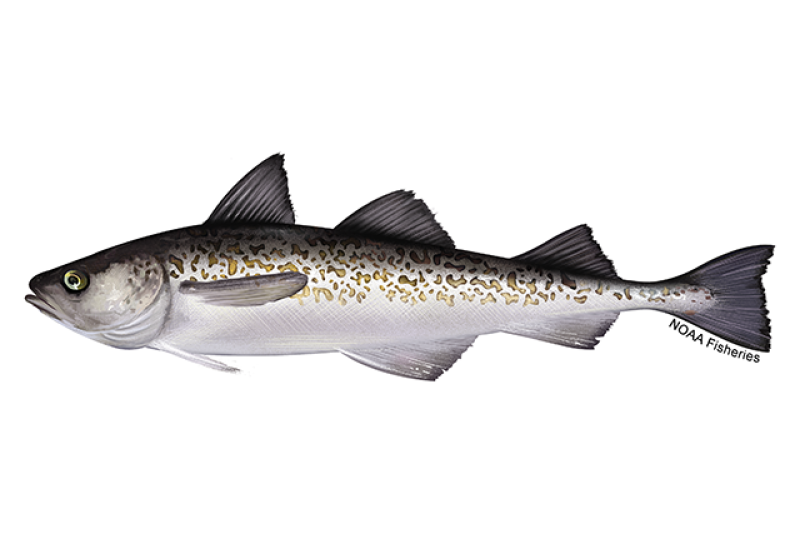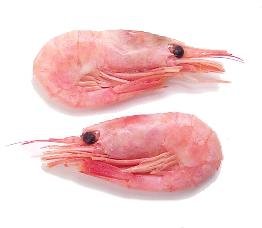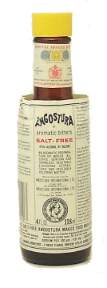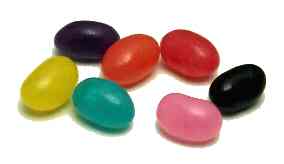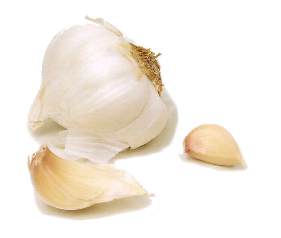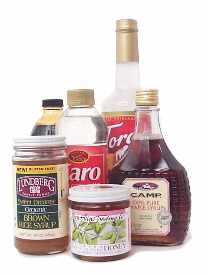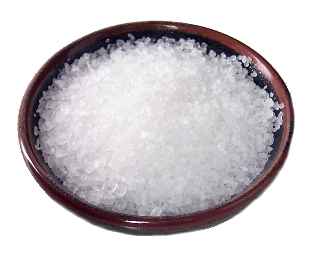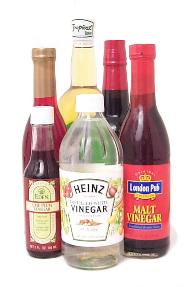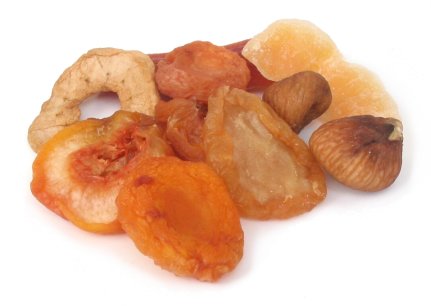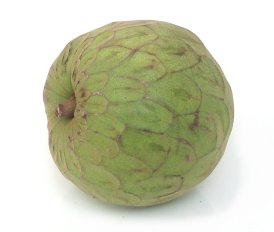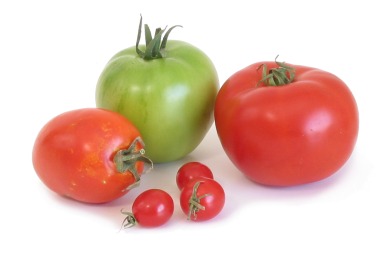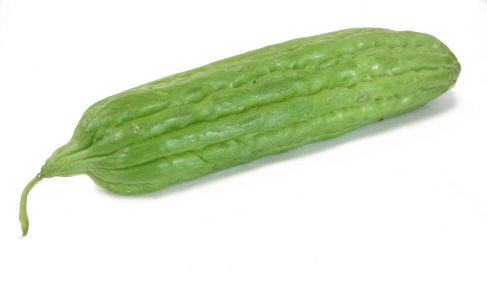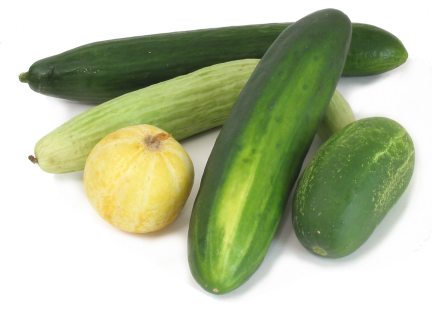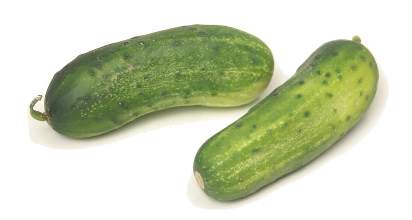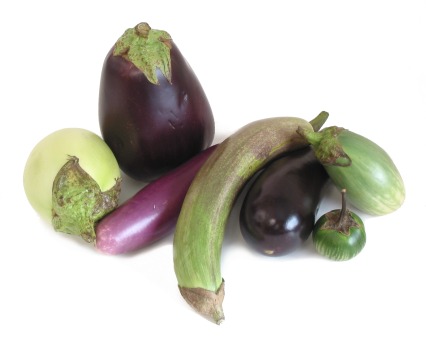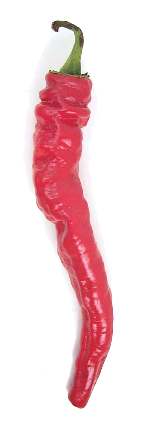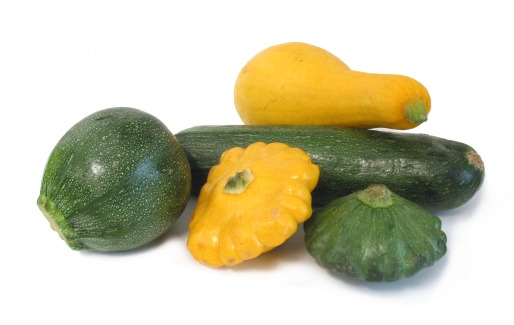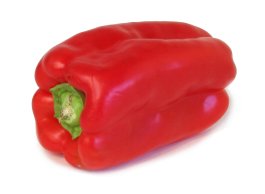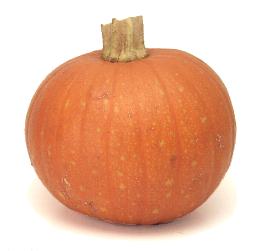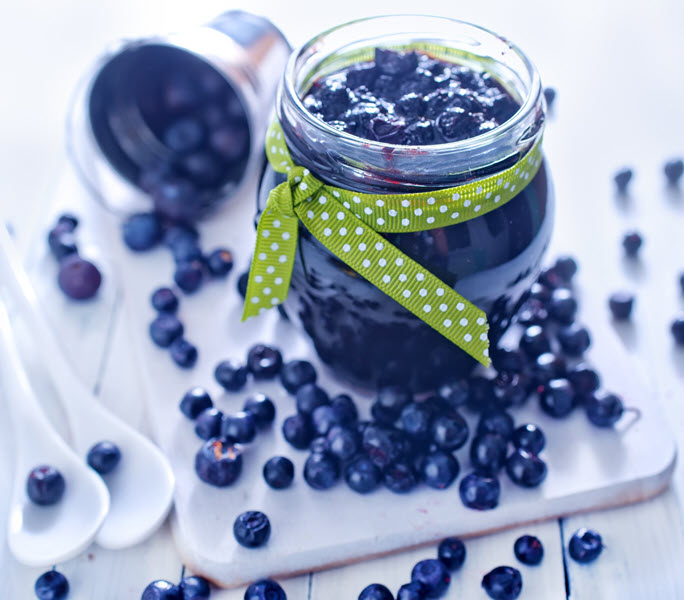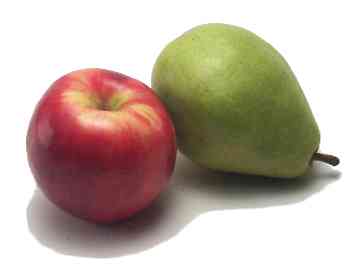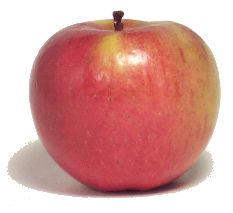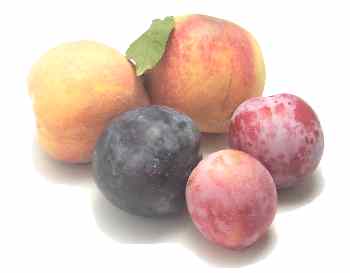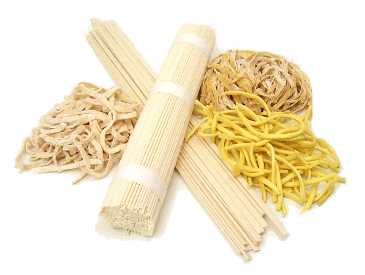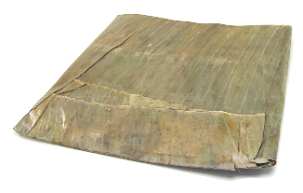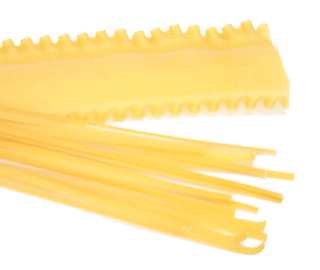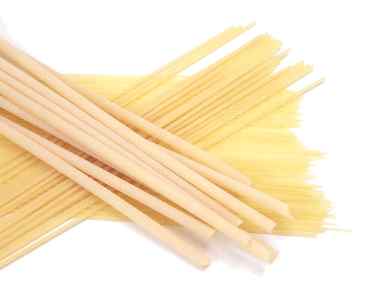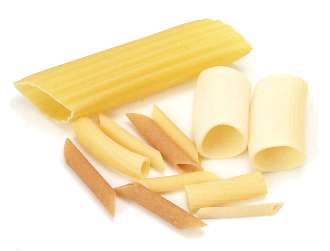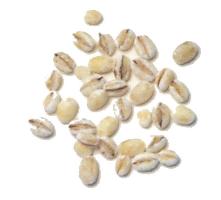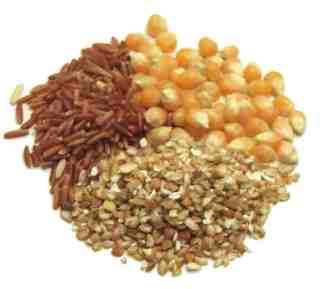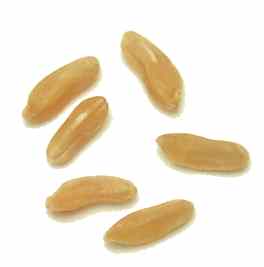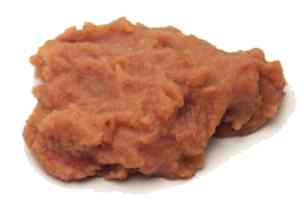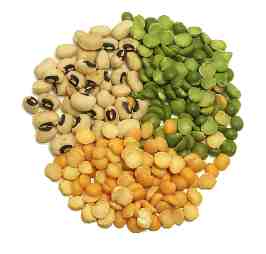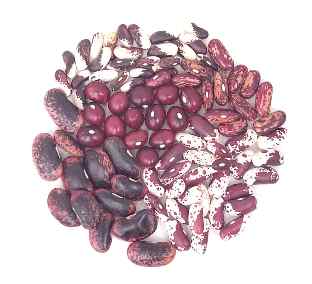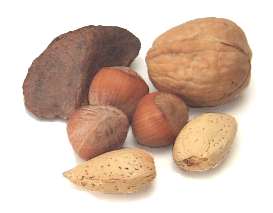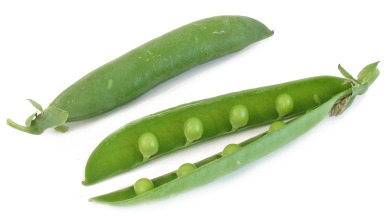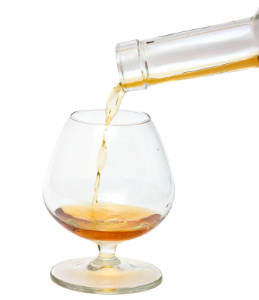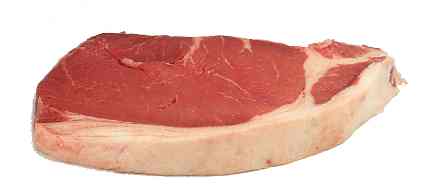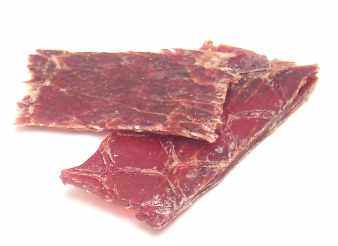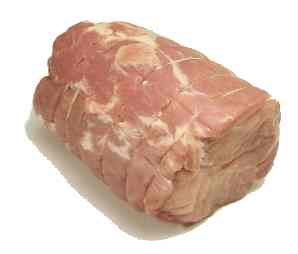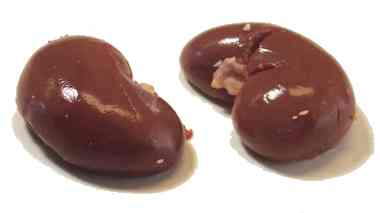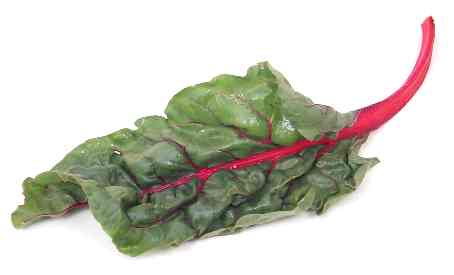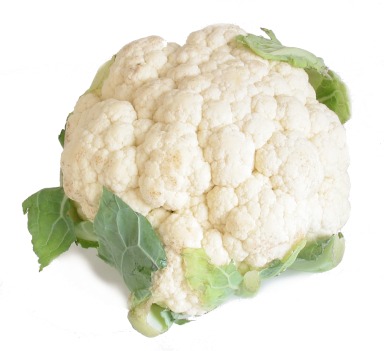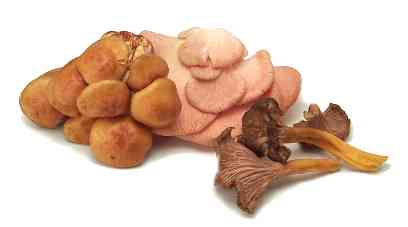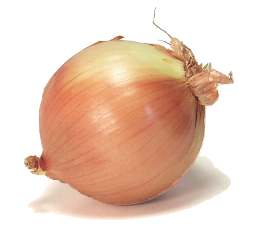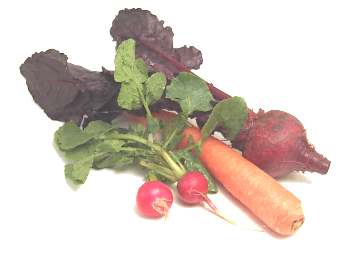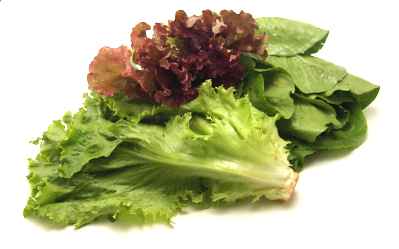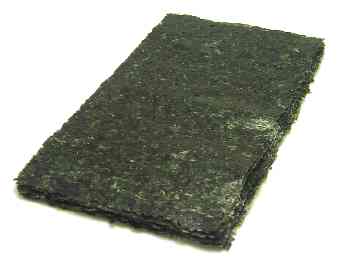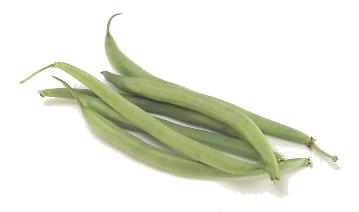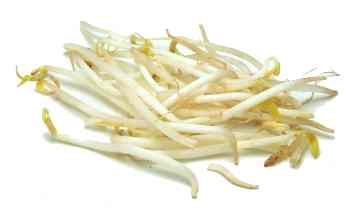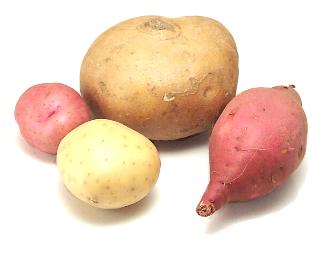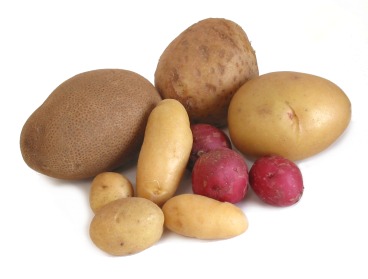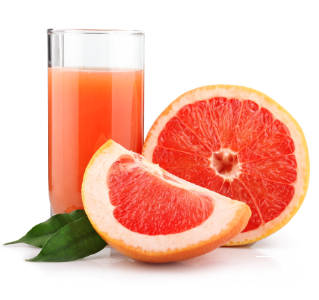All Ingredients
golden nugget squash
This has a pleasant flavor, but it doesn't have as much flesh as other squashes and the heavy rind makes it hard to cut before cooking. Select specimens that are heavy for their size, and that have a dull finish. Those with shiny rinds were probably picked too young, and won't be as sweet.
Learn moregolden raspberry
This is a blonder, milder version of the red raspberry. Don't confuse it with the Golden Raspberries (Razzies), which are given out to honor each year's worst films and performers.
Learn moregolden syrup
This amber-colored liquid sweetener is popular among British, Caribbean, and Creole cooks. It's made by evaporating sugar cane juice until it's thick and syrupy. Lyle's Golden Syrup and Steen's Pure Cane Syrup are popular brands.
Learn moreGoldschläger
This is a cinnamon schnapps with gold flakes floating in it. Imagine filling your mouth with red hots and washing them down with vodka.
Learn moreGoldwasser
This is a liqueur flavored with citrus peel, herbs, and spices. It has gold flakes floating in it.
Learn moregomiti
Gomiti is Italian for "elbow," and this pasta shape is like elbow macaroni, only it's bent more. Use it in pasta dishes with chunky sauces, pasta salads, or macaroni and cheese.
Learn moregook soo
A staple of Korea, these flat wheat noodles resemble fettuccine. They're usually served in a soup.
Learn moregoose
Europeans traditionally roast these for their Christmas dinners. The meat is dark and fatty, and more like fat-clad beef than chicken. Young goslings are the priciest, and the most tender. Wild goose is tougher and has a much stronger flavor than a domesticated goose. If the recipe calls for cut-up goose meat, consider using the dark meat from a turkey or chicken. High-fat meats like goose should be cooked at a higher temperature and for a longer time than low-fat meats. If roasting, consider removing the breast meat after it gets to 135 or 140 degrees, and then continuing to cook the thighs to a temperature of 165 or so. Frozen goose is a good substitute for fresh.
Learn moregooseberry
These large, tart berries are in season only in June and July, but canned gooseberries work well in pies and fools. American gooseberries are round and about 1/2 inch in diameter, while European gooseberries are oblong, and about twice the size of American gooseberries. They're very acidic, and so they're great with roasted meats, like goose. The freshest gooseberries are covered with fuzz.
Learn moregordita
A "gordita" (Spanish for "little fat one") is like a corn tortilla, only smaller and fatter. It inflates a bit when grilled, so it can be split to form a pocket and filled.
Learn moreGorgonzola
Italian cow's milk Gorgonzolas are creamy and mild, while domestic versions are sharper and more crumbly. A Gorgonzola dolce (DOLE-chay) is young, creamy, and mild, while a Gorgonzola naturale = mountain Gorgonzola is aged until it's firmer and more pungent. Use within a few days after purchasing. For best flavor, serve at room temperature. Some Gorgonzola cheeses can be frozen successfully, others become crumbly (but still usable in salads). For best results, first cut the cheese into small (1/2 pound) chunks, and wrap each chunk in an airtight package. Thaw in the refrigerator, and use the cheese soon after it's thawed.
Learn moreGouda
This Dutch cow's milk cheese has a mild, nutty flavor. Varieties include smoked Gouda, the diminutive baby Gouda, and Goudas flavored with garlic and spices. Goudas are also classed by age. A young Gouda is mild, an aged Gouda = medium Gouda = mature Gouda is more assertive, and an old Gouda = very aged Gouda is downright pungent.
Learn moregraham cracker crumbs
These mildly sweet crumbs make a terrific cheesecake or pie crust. Look for the crumbs in baking supplies section, or buy whole graham crackers and crush them yourself. Many markets also carry readymade graham cracker pie crusts.
Learn moregraham crackers
These moderately sweet crackers are made with whole wheat flour. They make great snacks for kids, but cooks often crush them and use the crumbs to make pie crusts. Cinnamon or chocolate flavored graham crackers are also available.
Learn moregrain alcohol
This is pure alcohol--odorless, tasteless, and very potent at 190 proof. Cooks use it to make liqueurs, but since it can also be used to purify crack cocaine, eyebrows may be raised if you buy a large bottle. Well-known brands include Everclear and Sunset. Grain alcohol should always be diluted before consumption, since it's so harsh and potent. Don't substitute methyl alcohol or rubbing alcohol for grain alcohol--both of these are toxic.
Learn moregrains
To get information about different forms and varieties of grains, click here. If you're looking to avoid gluten, consider a gluten-free grain, like amaranth, buckwheat, corn, quinoa, rice, and teff.
Learn moreGrana Padano
This is just like parmesan, except that it's made in a different part of Italy and not usually aged as long, making it milder. It is made from cow's milk. As with parmesan, it's often grated on pasta dishes and salads.
Learn moreGrand Marnier
This is a fairly sweet brandy-based orange liqueur. There are two kinds: the well-regarded red, or Cordon Rouge, and the sweeter and less potent yellow, or Cordon Jaune.
Learn moreGranny Smith apple
This is a firm, tart apple that's good for baking, making pies, and eating out of hand. They tend to have thick skins, so you might want to peel them before serving.
Learn moregranulated garlic
Like garlic powder, granulated garlic provides the flavor, but not the texture, of fresh garlic. It disperses well in liquids.
Learn moregrape juice
This category includes red grape juice, white grape juice, and sparkling grape juice.
Learn moregrape leaves
Greeks stuff these with ground lamb and rice to make dolmades, but they're used elsewhere to make pickles and beds for food. They're hard to find fresh in markets, but you can often find them in cans or jars. Trim the stems and rinse off the brine before using. To make your own: Plunge grape leaves (that haven't been sprayed with harmful chemicals) for one minute in boiling, salted water (2 teaspoons pickling salt per quart), then drain.
Learn moregrapefruit
A grapefruit is a large, slightly tart kind of citrus fruit. The rind is yellow, though often tinged with green or red. Grapefruits are categorized by the color of their pulp: red, pink, or "white" (actually honey-colored). The color of the pulp doesn't affect the flavor. When buying grapefruit, select specimens that are smaller, thin-skinned, and heavy for their size. Some varieties are seedless. They're best in the winter and spring.
Learn moregrapes
Many varieties of grapes are turned into wine, vinegar, jelly, and raisins, but table grapes are for eating out of hand. They're classified by their color--red, green, and blue--and by whether they have seeds or not. Seedless varieties are popular because they're easy to eat, but often the seeded varieties offer more flavor and better value.
Learn moregrapeseed oil
This oil is pricey, but it has the highest smoke point of any oil, which makes it ideal for sautéing or frying over high heat. It's also a good salad oil. Some claim that it reduces the risk of heart disease by reducing LDL (bad cholesterol) levels in the body.
Learn moregrappa
This potent and somewhat harsh drink is made from the grape residue, called pomace, that's left over from making brandy. It's traditionally been thought of as a second-rate eau de vie, but some producers have developed premium grappas that are quite smooth and very pricey. Grappa is the Italian version, marc the French, aguardiente the Spanish, testerbranntwein the German, and bagaceira the Portuguese.
Learn moregrated coconut
Bags of grated coconuts are usually stored among the baking supplies in larger markets. Varieties include dried or desiccated coconut, flaked, angel flake, moist, sweetened and unsweetened, toasted and untoasted, and macaroon coconut. To make your own: To grate, peel off the brown skin, then grate the white flesh with a grater, food processor, or vegetable peeler. To toast, spread unsweetened grated coconut on a baking sheet and bake in a 350°F oven until coconut is golden (about 5 minutes).
Learn moregrattoni
This egg pasta consists of tiny diamond shapes. It's used in broths and light soups.
Learn moreGravenstein apple
This is a good, all-purpose apple, but it's best suited for making applesauce and pies.
Learn moreGreek black olives
A generic black Greek olive is large, dark purple and brine-cured. Popular varieties include Kalamata, Amphissa, and Royal.
Learn moreGreek green olives
Napfilion and Ionian olives are the most common types of green Greek olives.
Learn moregreen bean
These are meant to be cooked and eaten, pods and all. They're best if they're steamed or stir-fried just until they're tender but still crisp. Select bright green beans that snap when broken in half. Their peak season is in the summer.
Learn more











